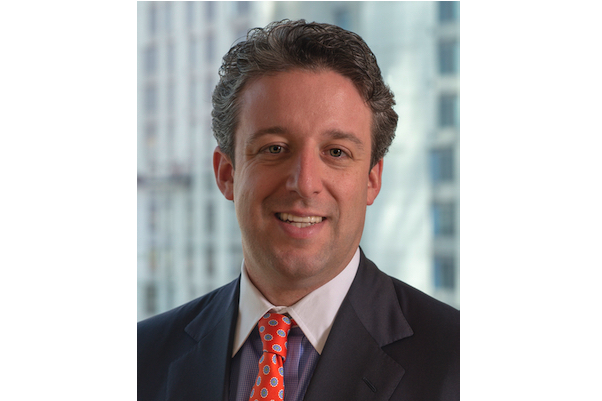If operating fundamentals continue to improve, the deal making pace is expected to pick up in the United States in 2022, with buyers and sellers coming closer together on pricing expectations. Resorts and drive-to destinations will likely remain in favor as long as the pandemic persists, and single assets and smaller portfolio deals are expected to remain in vogue as they can still get financed and closed without too much pain.
HOTELS spoke to a number of experts in the brokerage and consultancy space to get their take on the climate ahead in the U.S.
What are your expectations for deal-making in 2022?
Evan Hurd, Stephen O’Connor, RobertDouglas: Initially, sensing the flush of new capital (tourist capital) anxious to invest in hospitality, many owners of properties that essentially did well even during the darkest days of the pandemic were and are trying to take advantage of a seller’s market. If no one bites, they are still in a relatively comfortable position. They will just keep operating the hotel. However, post-ALIS, as we progress through 2022, we expect many more properties to come to market, for a variety of reasons, with more realistic expectations. This should narrow the bid-ask spread and get transactions flowing…
As we know, even in a compact region like the Northeast in the U.S., we are seeing that dichotomy of investor interest levels between urban core assets that are still having a difficult time with respect to valuations, as opposed to resorts and other drive-to locations, which are in vogue right now.

Thus, investors in urban markets are looking for simpler operating models, including less complex staffing challenges. An example would be RLJ Lodging Trust’s recent acquisition of the 205-room AC Hotel by Marriott Boston for about US$434,000 per key. Also, on the West Coast in June, KHP Capital Partners acquired Le Meridien San Francisco from Park Hotels & Resorts for approximately US$220 million.
However, REITs have always been prominent investors in urban full-service or big box hotels in major markets. The interesting trend we are seeing is in REITs seeking out destination resort properties, a space they have historically not been keen on. An example would be the acquisition of a genuine resort trophy property like Four Seasons Napa by Sunstone Hotel Investors.
We believe that REITs will continue along these lines, with a fundamental rebalance of their portfolios to this property class that has done well recently and may, in a new normal contrarian way, be thought of as recession resistant.
Guy Langford, Deloitte: There is plenty of appetite for deals by REITs and private equity firms for assets, as well as family office funds due to strong REIT pricing, plus plenty of dry PE powder.
We expect mostly single assets and smaller to mid-size portfolio deals, as it is easier to get those deals financed, closed easily and economies of scale can be attained in asset roll ups with larger owners. We also expect some brand plays with bigger brand families to aggregate single branded concepts.
Andrew Cohan, Horwath HTL: Appetite is strong in the Caribbean, as construction lending is still very slow, development timelines do not generate positive cash flow for several reporting periods, and one-by-one conversion of hotels and resorts can consume an operator or brand’s development team efforts with little impact… In 2022, I would want to be an all-inclusive owner/operator with five to 20 properties distributed in the Caribbean and Mexico, or across the Mediterranean.
Eric Guerrero, HVS: Based on our own pipeline and what I’m seeing in the broader market, I think deal-making is only going to continue to get better. I know this is optimistic, but I believe the transaction volume will reach pre-COVID levels by the end of 2022. The reason for this is all the equity chasing deals, financing loosing up, and hotel performance recovering so an investor can underwrite a credible return on day one. Most believe that the transaction market won’t fully recover to pre-COVID levels until 2023…
Within Texas, the appetite is strong, especially for markets like Austin and Dallas. Texas remained relatively open throughout COVID, so our hotels here did not see as large of an impact as hotels in other major cities, which helped keep investor interest strong. Additionally, all the recent economic growth in these two cities has investors bullish on the overall demand increasing moving forward, despite all the new room supply being added.
Kevin Mallory, CBRE Hotels: We expect a healthy deal environment throughout 2022, driven by recovering fundamentals and high liquidity in both the equity and debt markets. M&A activity will be driven in large part by companies seeking to scale and grow and/or take advantage of strong valuations.
Dan Hawkins, Berkadia: We expect that the number of deals hitting the market will cool. However, at the same time, the ratio of deals that are on the market and close will trend higher. The 2021 sales year can be characterized as being very slow in Q1, with a pick up in the first half of Q2, then an outright explosion of listed and unlisted deals in the second half of Q2 and into Q3. The 2021 Q2 and Q3 sales opportunities resulted in sellers with high expectations from the buying community, and prices at or above 2019 levels. The Delta variant definitely slowed this momentum down, acting as a bit of a gatekeeper on the opportunities coming to market, the expectations of the sellers and the eagerness of buyer’s capital.

Patrick Scholes, Gregory Miller, Truist Securities: Obviously San Francisco, Chicago, New York are heavily out of favor. But you may see some more aggressive, higher risk type of companies, or some more aggressive private equity firms looking for bargains in those urban markets. I’m not getting any sense that the public hotel REITs are looking to increase their exposure to New York or Chicago or San Francisco, as they’ll still be net sellers out of those markets…
If hotels are more profitable and companies on a trailing 12-month can show greater EBITDA, that might get some folks off the sidelines who have perhaps been waiting for that moment to say, ‘Hey, you know what, on a cap rate or EBITDA multiple, it is much more attractive for us to sell this year. Maybe the last two years we haven’t sold because we haven’t had great finances to show.’ That would help get some sellers off the sidelines because they’ll say investments are more attractive and they could get a better price for the asset.
Emil Iskandar, HVS Capital Markets: In the Western U.S., buyer appetite is high. However, sellers are not as motivated to do deals and are holding prices very close to 2019 levels. Owners are expecting to recoup losses caused by the pandemic relatively quickly and their lenders are very accommodating.
Dan Hawkins, Berkadia: The greater Mid-Atlantic area has yielded decent sales activity throughout the pandemic. That momentum in the area is strong relative to our Northeast and Midwest counter parts. Suburban extended-stay and select-service hotels led these sales trends for most of 2021. Looking ahead, however, we see suburban full-service hotels that are located in submarkets where demand has returned – weekend SMERF demand and building weekday transient business demand – as the next lodging asset type that will garner buyers’ attention.
Preston Reid, Berkadia: Florida is one of, if not the top, market for hotel investment in the country. We have never seen more deals on the market and closing than in late 2021. However, there are some challenges as owners are holding out for lofty pricing. Said another way, we are pricing some deals at record pricing that will ultimately not trade as owners decide to hold.
Spencer Scott, Berkadia: In Arizona and the Southwest, the appetite for acquisition is strong. Active and new investors to the region are following business and leisure demand towards mountain and desert submarkets. Recent exploration into leisure hotels has demystified past concerns for various market seasonality. Sensitivity to labor shortages and other growing costs draws attention to California-adjacent states.
What are the ongoing barriers to deal making, and how likely are they to be overcome?
Evan Hurd, Stephen O’Connor, RobertDouglas: Unrealistic expectations for sale prices. In late 2021, the once expected COVID discounts seem to be as scarce as hen’s teeth. Some are even expecting a premium for having done well during the pandemic. We call it the fire sale that never happened.
The bid-ask spread should tighten as more assets go on the market, especially as loans that have been extended finally come calling. Lender fatigue, the buck must land here, may induce property owners to sell existing assets rather than negotiate refinancing. Mounting PIP and capex requirements should result in more assets coming to market, as brands are increasing pressure to complete COVID-delayed renovations, and deferred maintenance piles up.

Eric Guerrero, HVS: COVID is the biggest barrier and any spike in cases from a new variant could derail deal making. Financing is another obstacle, but with it becoming more available recently, I don’t see it being a barrier anymore.
Kevin Mallory, CBRE Hotels: Investor and lender bandwidth is being stretched as the deal market broadens. Human capital is an issue for investors and lenders. While deals in the market will trade, specific investors or lenders whose investment parameters might align with an opportunity may not be able to act if otherwise at capacity for their people.
Lindsey deButts, Berkadia: The bid/ask gap between buyers and seller remains a challenge. The market never really saw the wave of distressed assets that many investors expected. If a property has weathered the COVID-storm, so to speak, sellers are not willing to take the discount to 2019 values that many buyers were hoping for.
For the debt side, property performance in 2019 and ramp up post-COVID will be critical. The further we move into recovery, the more important the 30-60-90 days of past performance will be on underwriting. Right now, many lenders are willing to de-emphasize 2020 performance, emphasizing instead proforma income over in place, but the further into 2022 we get, we may see lenders starting to lean into trailing 12-month operations as opposed to strictly proformas. As more properties stabilize, the permanent debt markets will need to come back to really help the refinance market kick off.
What is the state of the financing climate (debt availability)?
Evan Hurd, Stephen O’Connor, RobertDouglas: The markets continue to improve and offer more liquidity every month, as many lenders have stepped back into the hospitality arena. We are also seeing a good appetite for taking on subordinate tranche capital positions.
Obviously, there is still concern over some of the property types and locations that haven’t fared well due to the pandemic, and related restricted corporate travel and conventions. So, lenders are still cautious with markets where equity investors are concerned about the recovery timeline. In that respect, hospitality is ahead of office product and retail in the investment pecking order. Multifamily and industrial remain favored property types with values bid up to the stratosphere.
Overall, we expect hotel lending to be still more disciplined coming out of the pandemic than what we witnessed after the recent Great Recession.

Eric Guerrero, HVS: It’s all there – conventional, bridge, CMBS, SBA, etc. Leverage is lower than pre-COVID and the borrower has to have a strong balance sheet.
Kevin Mallory, CBRE Hotels: High liquidity. The debt markets continue to demonstrate capacity combined with attractive terms. Lenders are becoming more selective within a growing market.
Emil Iskandar, HVS Capital Markets: Debt is coming back gradually with more stringent underwriting parameters. The positive news is interest rates remain relatively low compared to historical levels.
Lindsey deButts, Berkadia: We expect 2022 to be stronger than 2021. We’ve seen many lenders take advantage of the yield they can achieve in the hotel space versus some of the more compressed and competitive asset types like multifamily and industrial. With refreshed allocations and a growing list of debt fund capital entering the market, more competition will help drive more favorable terms.
What is the potential impact of increasing interest rates?
Evan Hurd, Stephen O’Connor, RobertDouglas: Most borrowing in the hotel sector is floating rate debt, so the overall cost of capital could eventually increase, in turn, dampening asset valuations, but first we expect credit spreads will compress a bit.
We think a greater concern, or existential crisis, for hospitality would be structural changes in business and group travel. No one knows for sure yet, but if this sector of hospitality only returns to 75% to 80% of customary activity, it would likely depress the valuations of those properties for the long term.
Ironically, city center business has traditionally been viewed as of lower investment risk than lifestyle and vacation properties. That might just flip.
Eric Guerrero, HVS: Traditionally, that would put negative pressure on value as buyers would need to meet their yield requirements. However, with all the equity chasing deals, I think that any increase in interest rates would simply lower the return requirements for buyers, because they will still aggressively compete to “win” deals and keep values high.
Guy Langford, Deloitte: Rising interest rates will take economics away from “marginal” deals – lower quality assets in second- and third-tier markets. Cash flowing assets in key markets will attract good financing options.
